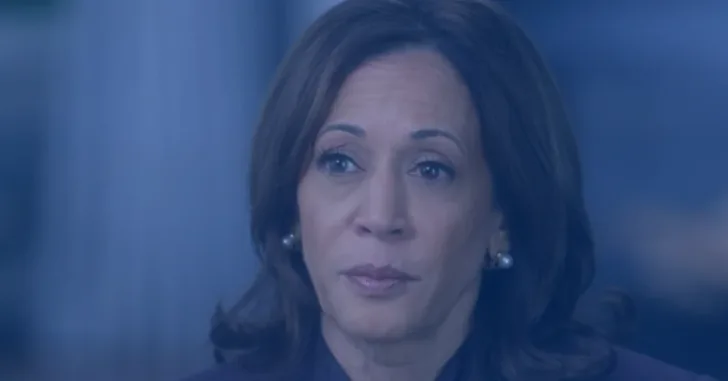The 60 Minutes interview with Vice President Kamala Harris covered a range of topics, from immigration and foreign policy to her economic proposals and personal disclosures. The interview, which aired as part of the election special, provided Harris with a platform to respond to criticisms while showcasing her policy priorities. Here’s an in-depth look at the major takeaways, reactions from both supporters and critics, and an explanation of why former President Donald Trump declined to participate.
Key Takeaways from the Interview
- Immigration Policy Defense: Harris defended the Biden administration’s approach to immigration, despite recent changes that critics say indicate policy flip-flopping. She stated, “The policies that we have been proposing are about fixing a problem, not promoting a problem.” When pressed about whether initial policy changes led to a surge in illegal immigration, she responded, “We have cut the flow of illegal immigration by half.” This stance met with mixed reviews, with some applauding her assertiveness while others criticized the lack of detailed solutions(Washington Examiner).
- Stance on Ukraine and Russia: Harris ruled out bilateral negotiations with Russian President Vladimir Putin without Ukraine’s involvement. She emphasized, “Ukraine must have a say in the future of Ukraine.” Harris also pushed back against Trump’s claim that he could end the conflict swiftly, asserting, “If [Trump] were president, Putin would be sitting in Kyiv right now.” Supporters viewed this as a strong affirmation of her commitment to U.S. allies, while critics argued that it lacked a clear plan for achieving peace(Washington Examiner).
- Response to the Israel-Hamas Conflict: On the Israel-Hamas war, Harris navigated a complex issue, defending Biden’s policies while highlighting the need for a ceasefire and humanitarian aid. When asked about Israeli Prime Minister Netanyahu’s actions, she said, “The better question is: Do we have an important alliance between the American people and the Israeli people? And the answer to that question is yes.” This diplomatic response drew praise for balancing U.S. interests, but also criticism for not taking a firmer stance on Netanyahu(Washington Examiner).
- Economic Proposals: Harris laid out her economic vision, which includes expanding the child tax credit and providing tax breaks for first-time homebuyers and small businesses. However, she faced tough questioning on how she would fund these initiatives. Harris reiterated that she would focus on “making sure that the richest among us who can afford it pay their fair share in taxes.” Critics argued her proposals lacked detail, with Bill Whitaker responding, “We’re dealing with the real world here.” This exchange highlighted the ongoing debate over the feasibility of her economic agenda(Washington Examiner).
- Personal Disclosure and the “Glock” Moment: Harris revealed that she owns a Glock pistol, adding a personal touch to the interview. “I have a Glock, and I’ve had it for quite some time,” she stated, noting her background in law enforcement. This admission drew mixed reactions, with some applauding her transparency and others questioning the appropriateness of the disclosure during a politically charged interview(Washington Examiner).
Reactions from Supporters and Critics
Supporters praised Harris’s composure and her ability to address complex issues like immigration and Ukraine with clarity and firmness. Many saw the interview as a strong performance that contrasted well against Trump’s absence. Democratic insiders viewed her statements about “quietly” building support in Congress as a sign of strategic planning for a potential legislative agenda(POLITICO).
Critics, however, argued that Harris lacked specificity, especially on how she would fund her ambitious economic proposals. Some conservative commentators labeled her responses as evasive, particularly on contentious topics like immigration and the Israel-Hamas war. Republican analysts suggested that Harris’s performance, while solid, did not do enough to sway undecided voters(POLITICO).
Why Trump Declined the Interview
Trump’s decision to back out of the 60 Minutes interview drew significant attention. The former president had initially agreed to participate but later cited concerns over the show’s insistence on “live fact-checking.” Trump’s spokesperson dismissed the interview as “fake news,” adding, “There were discussions, but nothing was ever locked in.” CBS responded by noting that the invitation remained open, and Harris’s interview went ahead without Trump’s participation(India Today).
Trump’s avoidance of the interview mirrors his 2020 clash with CBS, when he abruptly ended an interview and accused the network of bias. His refusal to participate this time was framed by the Harris campaign as a sign that he was unwilling to face tough questions, a narrative Harris’s team used to bolster her credibility(India Today).
Conclusion
Kamala Harris’s 60 Minutes interview was a pivotal moment in the campaign, giving her a chance to address critics, showcase her policy vision, and differentiate herself from Trump. While reactions were mixed, the interview successfully highlighted her strengths and areas of contention, setting the stage for the final stretch of the 2024 election.





